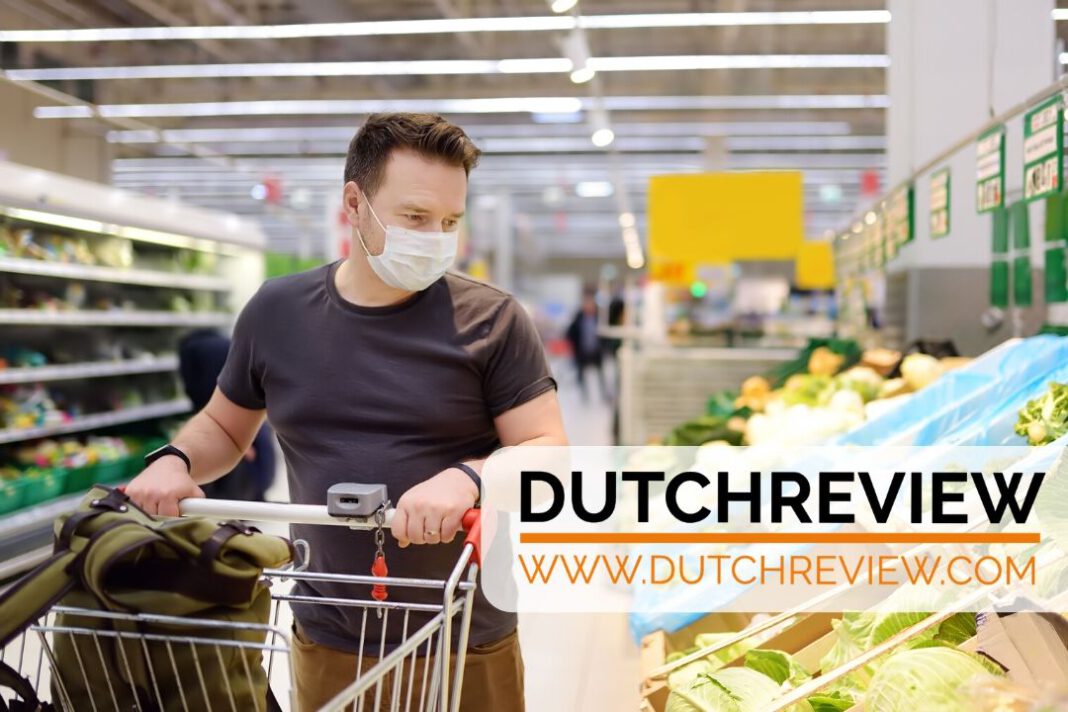This week’s figures from the RIVM show a slight decline in coronavirus cases in the Netherlands. But while the numbers are dropping the rate of infection has started to rise again — a bad omen for future numbers.
In the past week, the Netherlands has had 36,931 new infections, according to RIVM. This is 775 fewer than last week’s 37,706 new infections.
Along with the decline in new infections, hospitals are also seeing slightly fewer patients. The number of nursing ward hospitalizations has decreased to 1291 from the previous week’s 1496.
The number of patients in ICU has lower as well. While the previous week had 224 ICU patients, this week there were 193.
In the past week, there have been 422 COVID-19-related deaths in the country, down slightly from last week’s 479.
Here’s what else has happened during the past week regarding coronavirus in the Netherlands:
Experts call for stricter measures in schools
Secondary schools are now the fourth-highest source of coronavirus infections in the Netherlands. This has some experts saying stricter measures are needed.
Last week, several outbreaks in classrooms across the country caused Pediatrician epidemiologist Patricia Bruijning to point out that young people may be carrying the virus without knowing.
Bruijning and other experts are calling for more clarity from the OMT. They want to see improved protocol around coronavirus outbreaks in schools, and uniformity among districts.
Upcoming mask mandate
The Dutch government has released a set of guidelines to go along with the December 1 mask mandate. Beginning next Tuesday, everyone over the age of 13 will be required to wear a mask in indoor public spaces.
There are exceptions in some circumstances. For example, in primary schools; in buildings used for religious purposes; or when a person is sitting or standing still in one place, such as seated in the movie theatre or at a restaurant table.
Christmas “will be difficult”
In light of the slight upward trend in coronavirus cases, Prime Minister Mark Rutte is urging the public to be vigilant with current restrictions if they want to be able to move more freely by Christmas.
The prime minister says that the current figures are “not how you want it” at this time, but it is still too early to pass a judgement. “It is not yet possible to determine exactly how bad it is. We will keep an eye on that in the coming days.”
Restaurants could reopen mid-December
There is a possibility that restaurants may reopen in mid-December. The reopening will come with stricter conditions regarding alcohol sales and closing times. Staff and customers will be required to wear masks, and cough screens will need to be installed between tables.
The government’s December 8 press conference is expected to bring more clarity.
An indirect vaccination obligation
With the promising development of a vaccine, officials in the Netherlands are now discussing whether or not vaccination will be mandatory, juggling views regarding personal freedoms, public safety, and herd immunity.
While parliament is still debating the best course of action, they are considering “nudging” people toward vaccination, by preventing non-vaccinated individuals from entering certain public buildings, such as concert halls and libraries.
“The cabinet will not be for coercion,” Rutte said, “but you can also nudge indirectly by stimulating people. That is really a medical-ethical point of view, we are currently considering that.”
The vaccine and airlines
The aviation industry is already making plans for mandatory COVID-19 vaccination for travellers. International Aviation Industry Organisation (IATA) is developing an app to function as a type of coronavirus passport, expected to be available in early 2021. The app will quickly prove whether you been vaccinated or have tested negative for the virus.
Australian airline Qantas has announced that all international travellers will need to show proof of vaccination, and are deciding whether the same requirement will hold for domestic flights.
Qantas CEO Alan Joyce expects they won’t be the only company with this plan. “I think we’ll see this with more airlines,” he says.
Increased testing
The government plans to greatly increase testing capacity by March. The goal is for every resident of the Netherlands to be able to be tested for coronavirus once per month.
Testing will take place regardless of whether symptoms are present if the government can work out a plan. In order for this to happen, a number of details need to be sorted. Namely, training of personnel and expanding testing locations.
To stay up-to-date with all of the latest coronavirus news in the Netherlands, follow DutchReview on Facebook.
Feature Image: DutchReview/Canva



